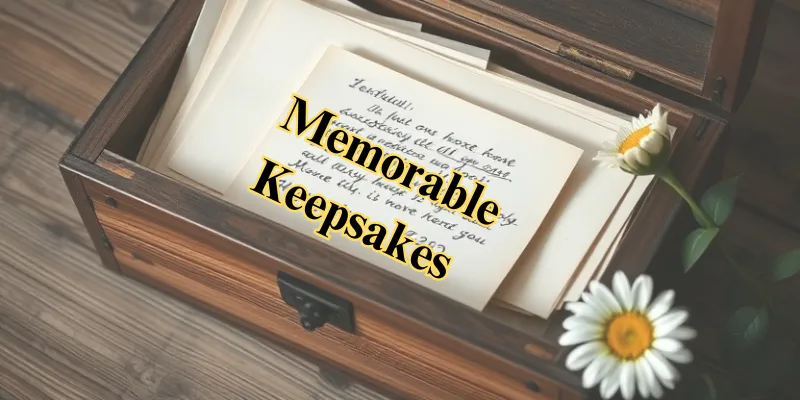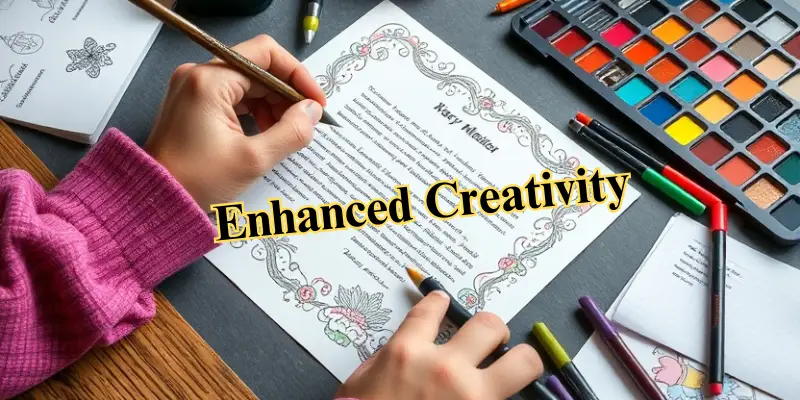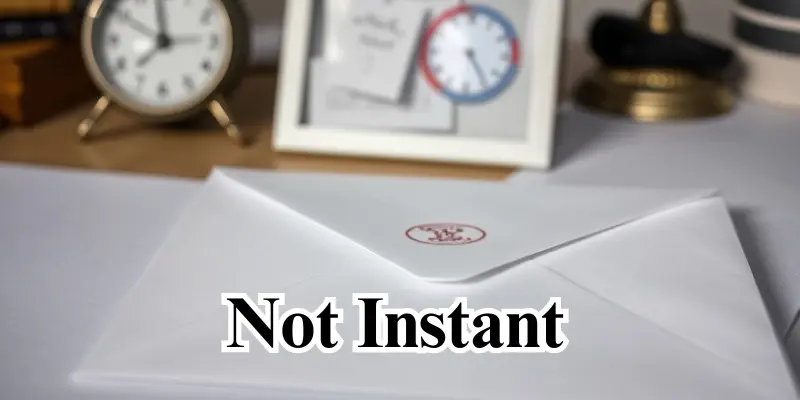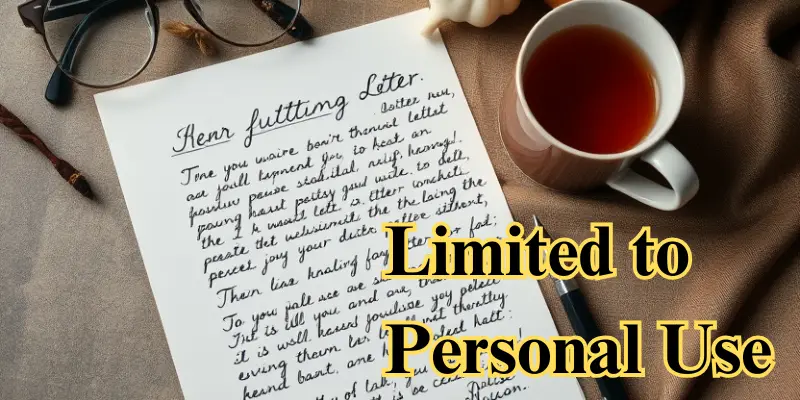The Advantages and Disadvantages of Letter Writing: A Heartfelt Practice in a Digital Age
Published: 21 Nov 2024
Hello Readers!
Imagine you’re about to write a letter to your best friend. You’re not sending a quick text message; instead, you pick up a pen and write down your thoughts on paper. It’s something different, right? Writing a letter takes more time, but it’s a great way to express your feelings in a deeper way.
However, like everything else, letter writing has its pros and cons. Writing a letter allows us to express our emotions better, but it’s not as quick and easy. In today’s world, where we’re used to instant messaging, letter writing may feel a bit outdated.
As C.S. Lewis once said,
“We read to know we are not alone.” C.S. Lewis
Similarly, when we write letters, we feel a deeper connection with others. But, just like anything, it has its advantages and disadvantages.
In this article, we’ll talk about the advantages and disadvantages of letter writing, and how this old-school practice is still valuable today.
So, if you’re curious about how letter writing can be both meaningful and practical, keep reading!
2. Advantages of Letter Writing
Letter writing has many amazing advantages, making it a valuable skill even in today’s digital age. From personal connections to improving creativity, letter writing offers something unique that other forms of communication can’t. Let’s explore some of these benefits:
Quick Overview:
- Personal Connection
- Memorable Keepsakes
- Improves Writing Skills
- Promotes Thoughtfulness
- Enhanced Creativity
- Record of Thoughts
- Boosts Reflection
- Mindful Communication
- Patience and Focus
- Promotes Honesty
1. Personal Connection
Writing a letter gives you the chance to connect with someone on a much deeper level than sending a quick text. It’s a personal way of sharing thoughts, emotions, and stories. You’re not just typing a message; you’re sharing a piece of yourself.

2. Memorable Keepsakes
Unlike digital messages that can get lost in a cloud, a letter is something physical. It can be kept for years, becoming a memorable keepsake. Imagine looking back at a letter from a friend or family member years later—it brings back cherished memories.

3. Improves Writing Skills
Writing letters helps you improve your writing skills. You have time to think about what you want to say, how to express it, and to make sure your words are clear and meaningful. This practice can make you a better writer in general!

4. Promotes Thoughtfulness
Writing a letter requires thoughtfulness. You can’t just hit send in a second like with a text. You have to carefully think about your words, the tone, and the message. This shows the other person that you care enough to take the time.

5. Enhanced Creativity
When you write a letter, you have the space to be creative with your words. Whether it’s a funny story, a beautiful poem, or a heartfelt message, letter writing encourages creativity that can’t always come out in a quick chat.

6. Record of Thoughts
A letter is like a record of thoughts. It holds your feelings and ideas, capturing a moment in time that can be reflected upon later. It’s a great way to look back and remember how you felt at a certain time in your life.
7. Boosts Reflection
Writing a letter often encourages reflection. Before you write, you think about what you want to say and why it matters. This process helps you better understand your own emotions and thoughts, allowing you to express them in a meaningful way.
8. Mindful Communication
Letter writing promotes mindful communication. You aren’t distracted by other apps or notifications. Instead, you focus solely on the message you want to send, making it more intentional and impactful.
9. Patience and Focus
Letter writing teaches patience. Unlike texting, which is fast, writing a letter requires time. It encourages you to slow down and think carefully about what you want to communicate. This can help you become more patient and focused in other areas of life.
10. Promotes Honesty
In a letter, you have the space to be open and honest. There’s no rush, and you can express your true thoughts without worrying about immediate responses. This promotes honesty and authenticity in communication.
3. Disadvantages of Letter Writing
While letter writing has many benefits, there are a few disadvantages that make it less suitable in today’s fast-paced world. Let’s take a closer look at the challenges:
Quick Overview:
- Time-Consuming
- Not Instant
- Limited to Personal Use
- Risk of Miscommunication
- Requires Postal Services
- Environmental Impact
- May Be Forgotten
- Lack of Immediate Feedback
- Space and Materials Needed
- Not Suitable for Urgent Communication
1. Time-Consuming
Writing a letter takes time, especially when you’re carefully choosing words and structuring your message. Unlike emails or text messages, letter writing can take longer to compose, making it less efficient when you’re in a rush.

2. Not Instant
In a world that thrives on instant communication, letters can be a slow process. You can’t expect a quick response, as letters require time to be delivered, read, and replied to. This can feel frustrating when you need answers urgently.

3. Limited to Personal Use
Letter writing is mostly used for personal or informal communication, meaning it’s not ideal for professional or business purposes in most cases. While emails and online communication dominate professional settings, letters have become less practical.

4. Risk of Miscommunication
Without the ability to immediately clarify meanings or tone, letters can sometimes lead to misunderstandings. A slight misinterpretation of a word or phrase might result in confusion that would be easily avoided in a conversation or email.
5. Requires Postal Services
Sending a letter requires postal services, which can be an additional hassle, especially if you don’t have access to a nearby post office. Additionally, there’s always a risk of letters getting lost in transit, causing delays or loss of important information.
6. Environmental Impact
Letter writing involves using paper and often even envelopes, leading to environmental concerns. With increasing focus on sustainability, this can be seen as an unnecessary use of resources when digital communication is available.
7. May Be Forgotten
Letters can sometimes be misplaced, forgotten, or left unread. Unlike digital messages that stay in inboxes, physical letters may end up in drawers or piles of other paperwork, leading to important messages being overlooked.
8. Lack of Immediate Feedback
Unlike instant messaging or calls, letters don’t offer immediate feedback. If you have a pressing concern or question, you’ll have to wait for days or even weeks to get a response, which might not always be ideal in urgent situations.
9. Space and Materials Needed
Writing a letter requires materials like paper, pens, and envelopes. For some, this might seem like an unnecessary effort compared to the ease of typing an email or message on a smartphone.
10. Not Suitable for Urgent Communication
In emergencies or situations that demand quick updates, letter writing is not the best option. You can’t rely on it for urgent communication, especially when you need to act or receive a reply quickly.
FAQs About Letter Writing: Advantages and Disadvantages
Letter writing has been a timeless form of communication, connecting people in meaningful ways. While digital messages have taken over, the tradition of writing letters still holds a special place for its personal touch and emotional depth. Here are some frequently asked questions about letter writing, its advantages, and its disadvantages.
How does letter writing improve writing skills?
When you write letters, you take time to think about your words and structure them carefully, which enhances your writing abilities. The practice of writing regularly helps you become more articulate and precise in your communication.
What are the main advantages of letter writing?
The main advantages of letter writing include personal connection, thoughtful communication, and the preservation of memories. It also improves writing skills, fosters creativity, and provides a more meaningful way to express emotions.
What is letter writing?
Letter writing is the art of communicating thoughts, emotions, and ideas through written messages, traditionally on paper, to someone else. It’s a personal form of communication that allows for deeper expression.
Can letter writing help build stronger relationships?
Yes! Writing a letter allows you to express yourself more deeply and sincerely, making it easier to connect on an emotional level with the reader. It shows thoughtfulness and consideration, which strengthens relationships.
What are the disadvantages of letter writing?
Some disadvantages of letter writing include its time-consuming nature, the potential for messages to get lost or delayed, and the lack of instant communication, unlike modern texts or emails.
Why is letter writing still important today?
Despite the rise of digital communication, letter writing remains important because it offers a personal touch, creates lasting memories, and provides a deeper connection that texting or emailing often lacks.
Does letter writing encourage reflection?
Yes, writing a letter often encourages you to reflect on your thoughts and feelings before putting them down. This reflection process allows you to better understand and express your emotions in a meaningful way.
How does letter writing promote mindfulness?
Letter writing promotes mindfulness by encouraging you to focus entirely on the message you are crafting. You’re not distracted by notifications or other apps, which makes the communication more intentional and thoughtful.
What are the creative benefits of letter writing?
Writing a letter gives you the freedom to be creative, whether through sharing a funny story, writing a poem, or using unique language to convey your emotions. It’s a great way to let your imagination flow.
Letters serve as physical keepsakes that can be saved for years. Unlike digital messages, which can be deleted or lost, letters can be stored, re-read, and cherished, keeping memories alive over time.
Conclusion
- The Advantages and Disadvantages of Letter Writing highlight its unique charm and limitations.
- It fosters personal connections and enhances creativity but can be time-consuming and unsuitable for urgent communication.
- Letter writing may seem outdated, but it offers a heartfelt way to connect and express emotions deeply. Even in today’s digital age, it holds timeless value for those seeking meaningful interactions.
- What did you learn from this guide? Share your thoughts in the comment section below! Also, feel free to write and share your letter in the comments.
Let’s rediscover the art of letter writing together!

- Be Respectful
- Stay Relevant
- Stay Positive
- True Feedback
- Encourage Discussion
- Avoid Spamming
- No Fake News
- Don't Copy-Paste
- No Personal Attacks

- Be Respectful
- Stay Relevant
- Stay Positive
- True Feedback
- Encourage Discussion
- Avoid Spamming
- No Fake News
- Don't Copy-Paste
- No Personal Attacks








